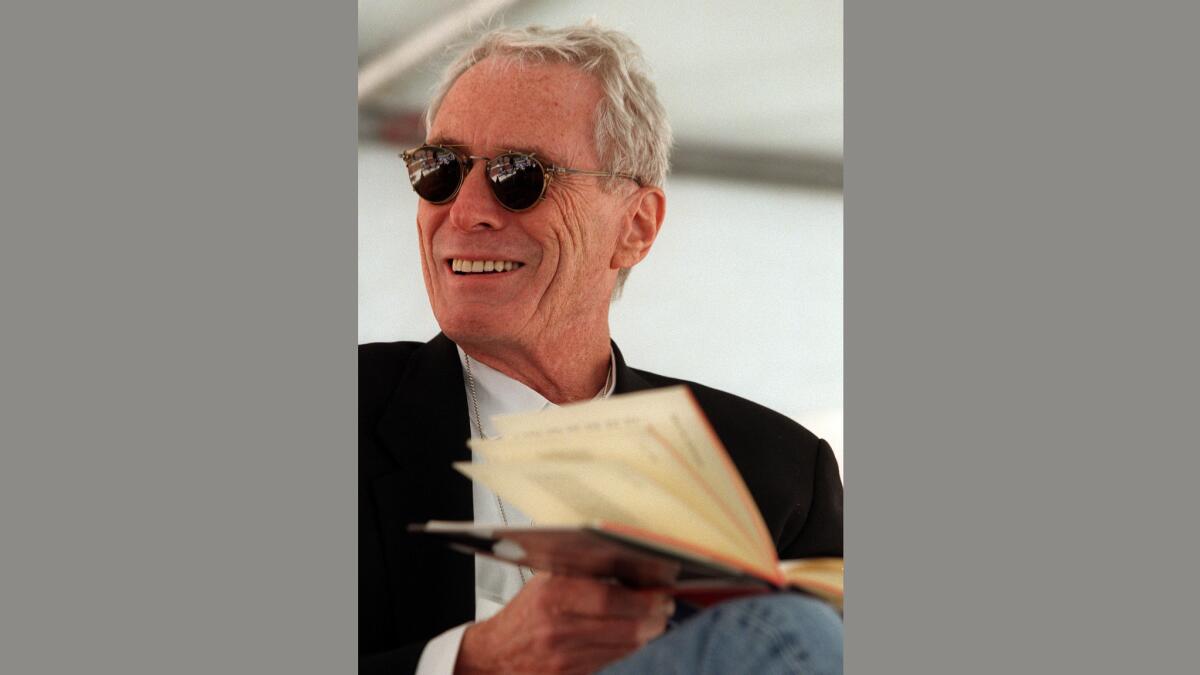Former U.S. poet laureate Mark Strand dies at 80

- Share via
Former U.S. poet laureate Mark Strand died Saturday, the New York Times reported. Strand, 80, had suffered from cancer.
Strand, who began publishing in the 1960s, was widely recognized as one of America’s premier poets. His poetry was known for its spare, taut language and a deceptive simplicity that paired a direct style with dreamlike images. His most recent book, “Collected Poems,” was longlisted for the 2014 National Book Award.
Strand was named U.S. poet laureate in 1990. His many other awards and citations include a MacArthur “genius” Fellowship in 1987, the Wallace Stevens Award from the Academy of America Poets in 2004 and the Pulitzer Prize, which he won in 1999 for his collection “Blizzard of One.”
“I have nothing to say about my poetry,” Strand told an audience at the Los Angeles Times Festival of Books in 1999. “Everything I have to say is in my poems.”
Born on Prince Edward Island, Canada and raised in the United States, Mexico and South America, Strand turned to poetry while in college at Yale. He went to Italy on a Fulbright scholarship, studying Italian poetry. He then got a master’s degree at the Iowa writers’ workshop at the University of Iowa.
His books of poetry include the collections “Reasons for Moving,” “Almost Invisible,” “A Continuous Life,” “Darker” “Sleeping with One Eye Open” and the book-length poem “Dark Harbor.”
In addition to poetry, Strand published works of translation and criticism, including the book “The Art of the Real” and works on the painters William Bailey and Edward Hopper. He also wrote the short-story collection “Mr. and Mrs. Baby and Other Stories” and children’s’ books, including “The Planet of Lost Things.”
Strand, who was described by the L.A. Times in 1991 as looking “like Robert Redford playing the part of a tenured professor,” enjoyed a certain kind of poetic celebrity during the early 1970s.
“Groupies were a big part of the scene. Poets were the underground pop stars, and when we made the campus circuit, girls would flock around. It wasn’t bad. I rather liked the uncertainties of my life then. They kept me on my toes, kept me from falling in a rut and becoming too domesticated,” he said.
“Domestic stability is very good for a poet at a certain age,” Strand continued. “But early in life, he needs excitement. That’s when you fulfill all the romantic notions of what poets really are.”
Book news and more; I’m @paperhaus on Twitter
More to Read
Sign up for our Book Club newsletter
Get the latest news, events and more from the Los Angeles Times Book Club, and help us get L.A. reading and talking.
You may occasionally receive promotional content from the Los Angeles Times.






